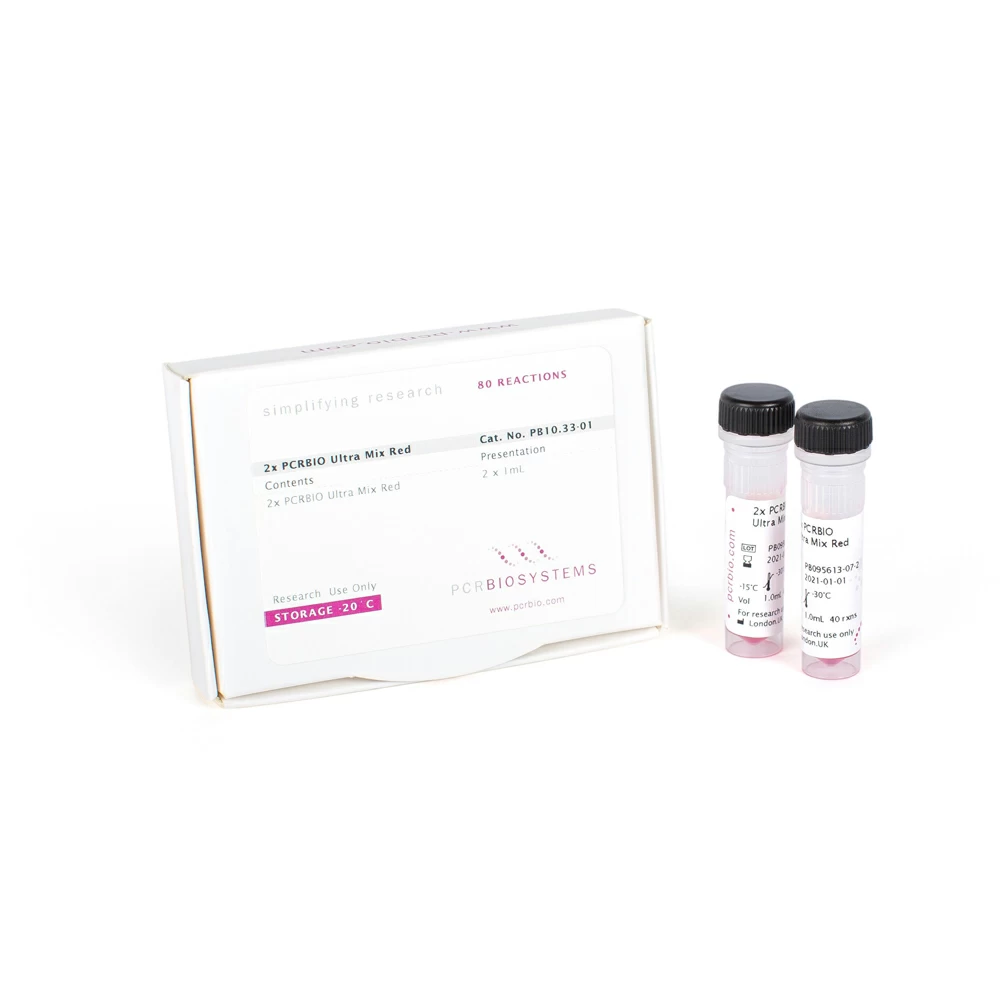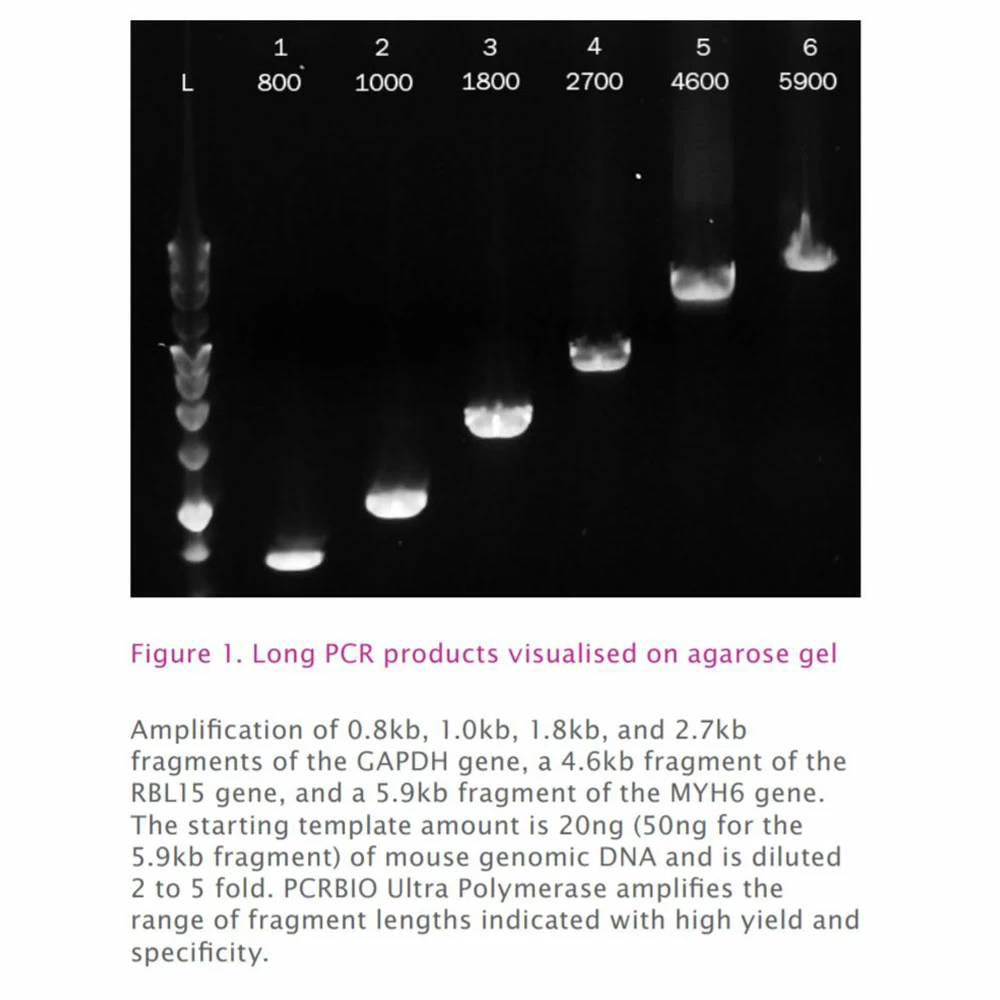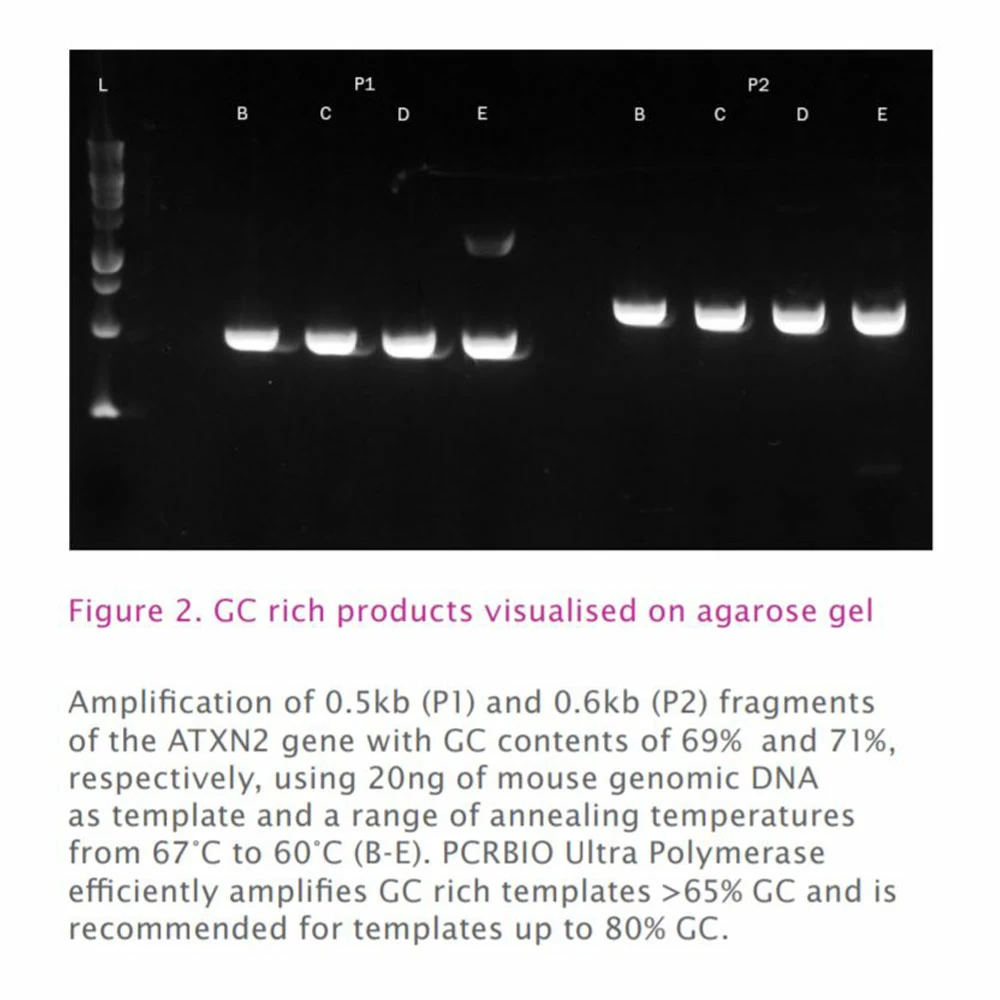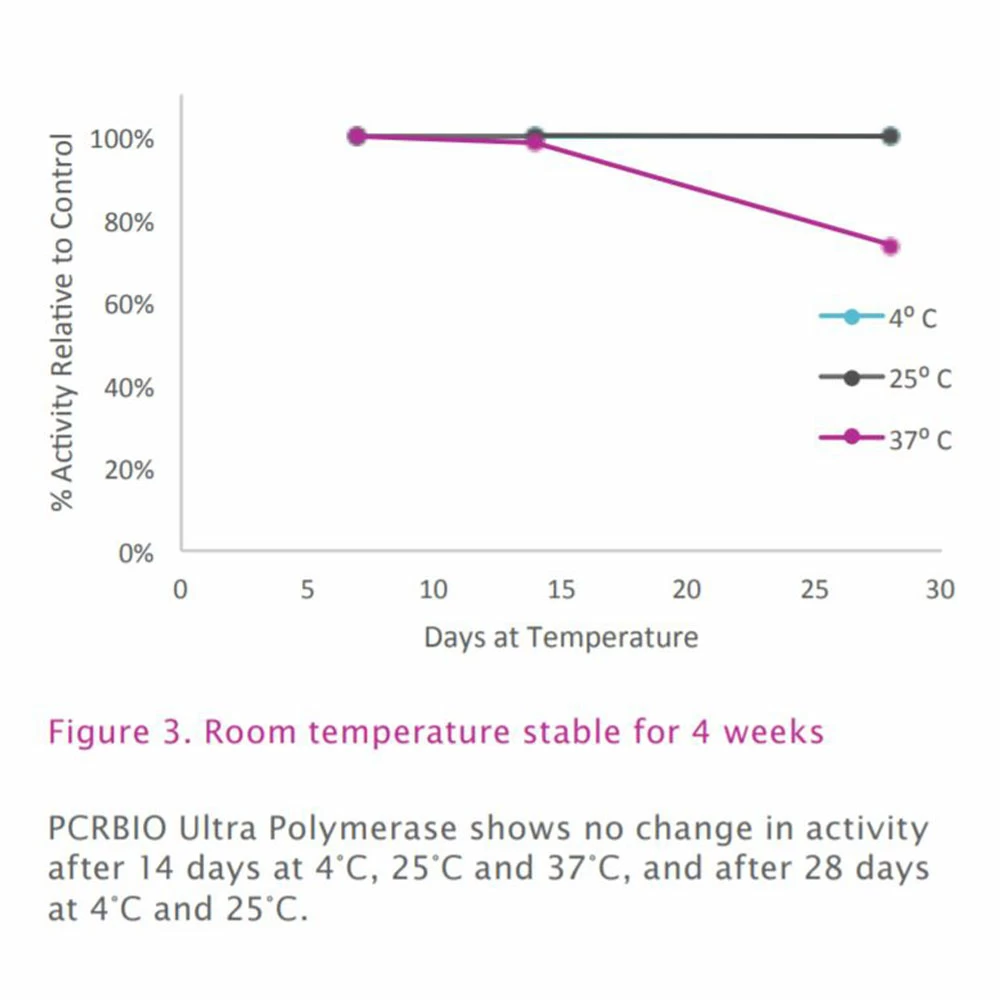Cat #: 17-206B
PCR Biosystems PB10.33-05 PCRBIO Ultra Mix, Red, 10 x 1ml Ultra Mix Red, 400 Reactions/Unit









Cat #: 17-206B
PCR Biosystems PB10.33-05 PCRBIO Ultra Mix, Red, 10 x 1ml Ultra Mix Red, 400 Reactions/Unit
10 x 1ml Ultra Mix Red
400 Reactions/Unit
Brand: PCR Biosystems- Specifically designed for difficult templates and particularly useful for high GC templates
- Increased PCR success rates with amplicons up to 35kb
- Proprietary hot start technology for unrivalled detection of low copy number templates
- Higher intolerance to inhibitors - can be used for crude sample and colony PCR
- Advanced buffer chemistry including Mg and dNTPs
- High yields under standard and fast PCR conditions
- Contains red dye for direct-to-gel analysis
- Also available as polymerase with separate buffer or as a clear master mix

Color
Size
10 x 1ml Ultra Mix Red
400 Reactions/Unit
Brand: PCR Biosystems- Specifically designed for difficult templates and particularly useful for high GC templates
- Increased PCR success rates with amplicons up to 35kb
- Proprietary hot start technology for unrivalled detection of low copy number templates
- Higher intolerance to inhibitors - can be used for crude sample and colony PCR
- Advanced buffer chemistry including Mg and dNTPs
- High yields under standard and fast PCR conditions
- Contains red dye for direct-to-gel analysis
- Also available as polymerase with separate buffer or as a clear master mix
PCRBIO Ultra Polymerase from Genesee Scientific has been engineered for the amplification of extremely difficult templates. Latest polymerase developments are combined with PCR Biosystems proprietary hot start technology to deliver outstanding performance for all of your PCR applications.
Whether your template is long, GC / AT rich, in low abundance or contains PCR inhibitors, PCRBIO Ultra Polymerase is able to rise to the challenge. PCRBIO Ultra Polymerase is inactive at room temperature thanks to PCRBIOs’ proprietary small molecule inhibitor formulation which releases upon heating to 95 degrees. This prevents primer dimer formation to improve sensitivity and specificity in your PCR. PCRBIO Ultra Polymerase uses the latest developments in DNA polymerase technology and buffer chemistry to enhance PCR speed, yield and specificity. The enzyme is supplied with an optimized buffer containing dNTPs and MgCL2. The PCR products generated are A-tailed and may be cloned into TA cloning vectors.
| Packaging | 10 x 1ml Ultra Mix Red |
|---|---|
| Reactions | 400 x 50ul Rxns/Unit |
| Error Rate | 1 error per 5.0 x 10^5 nucleatides incorporated |
| Storage | Between -30 and -15°C |
| Color | Red |
| Compare To | KAPA2G Robust HotStart ReadyMix |
Yes. If you’re working from bacterial colonies use a sterile tip to pick a colony and re-suspend into the 50µl PCR reaction. If working from liquid culture add 5µl of overnight culture to the final mix. Follow the general protocol and increase the initial denaturation time to 10 min at 95°C.
Yes. Use 2 µL blood sample to a 50 µL PCR reaction and follow the general protocol. Please note that blood components may inhibit the PCR reaction. Perform a serial dilution of the sample in order to find the optimal template concentration for the PCR amplification.
Enjoy our products? Leave a review and let us know.


 Can PCRBIO Ultra Polymerase be used for colony PCR?
Can PCRBIO Ultra Polymerase be used for colony PCR?